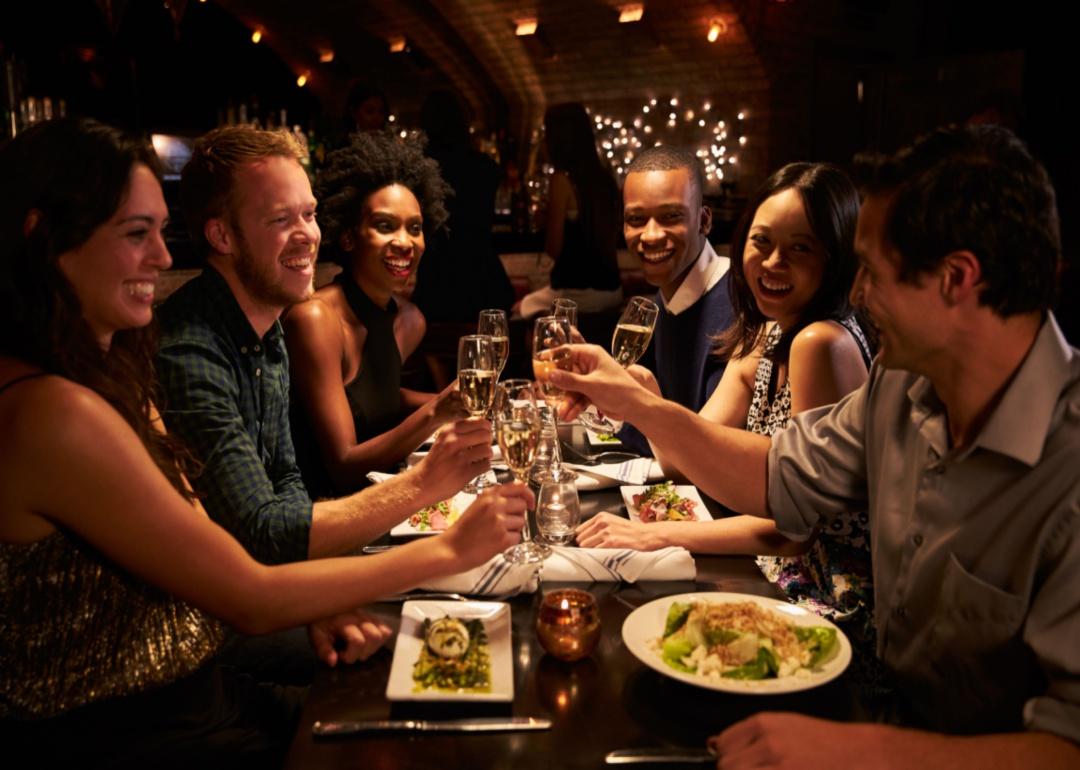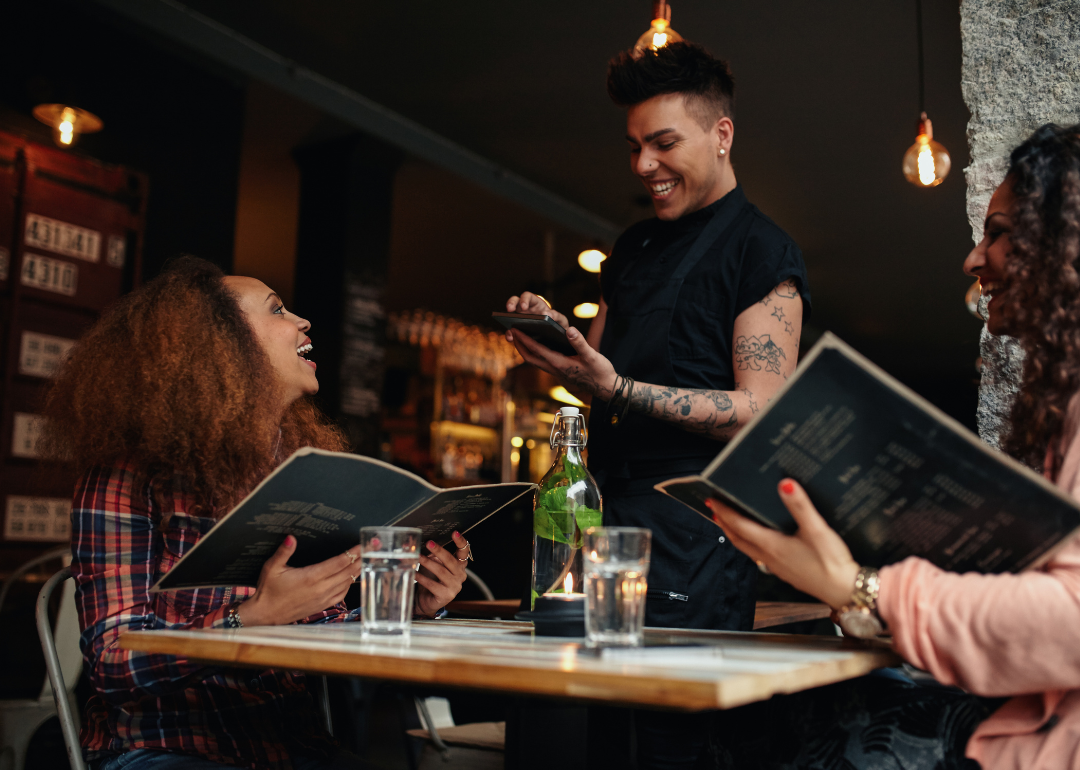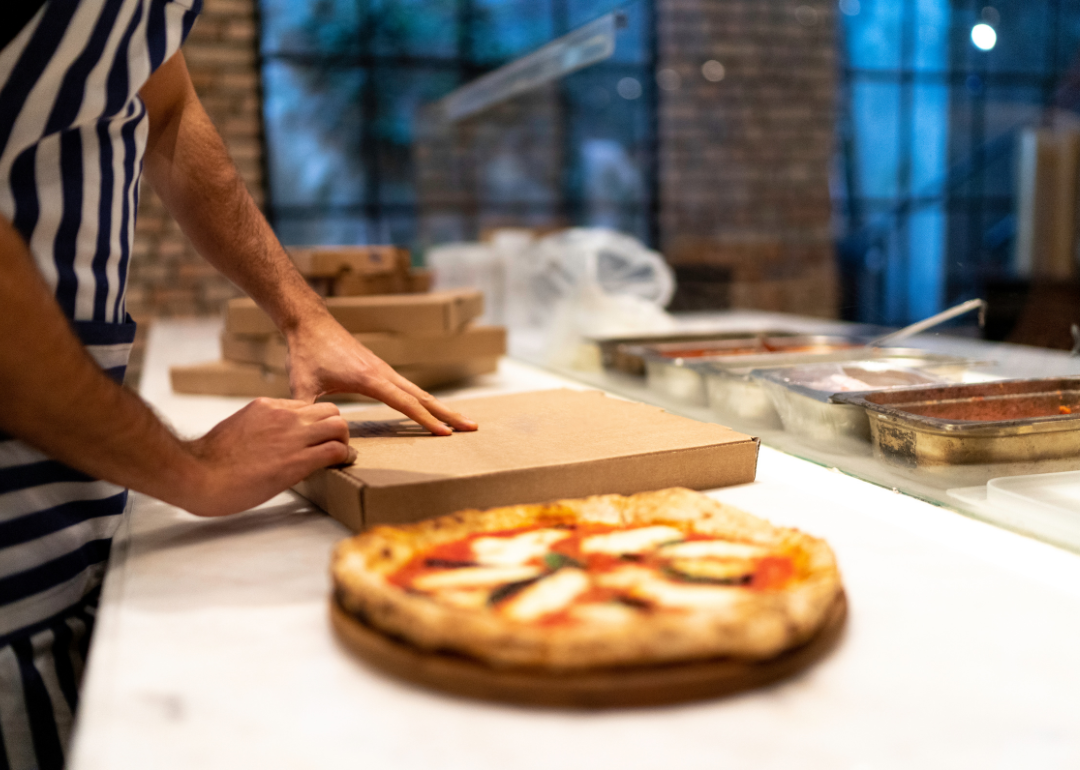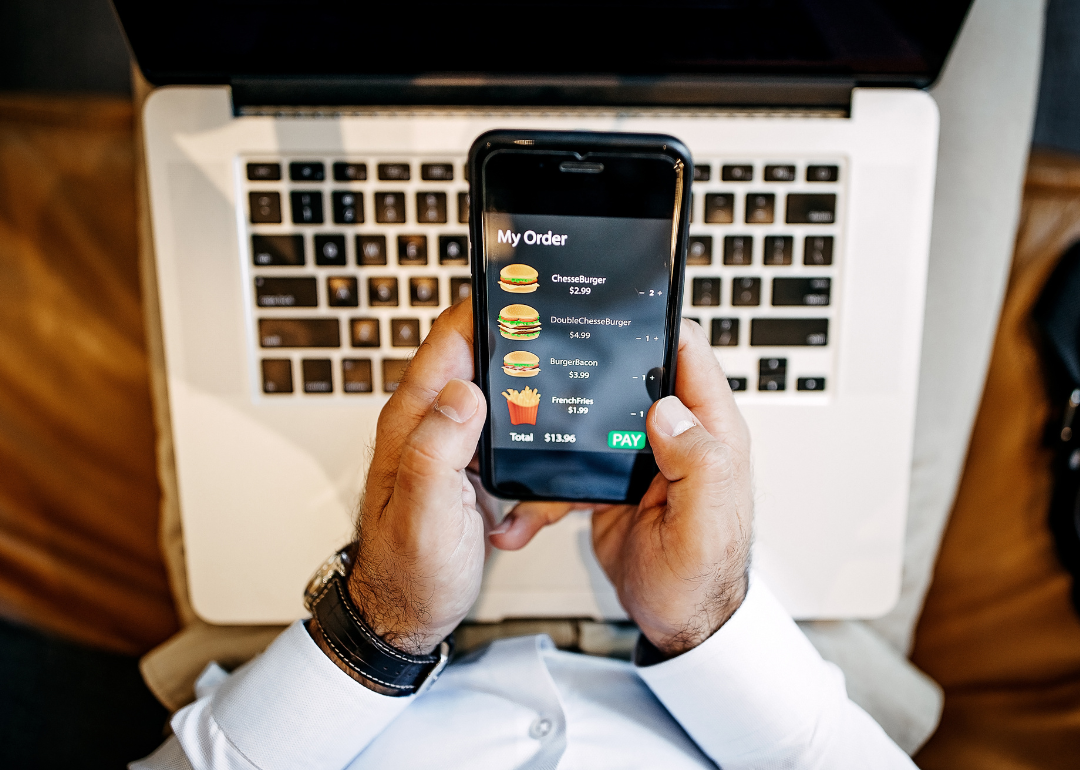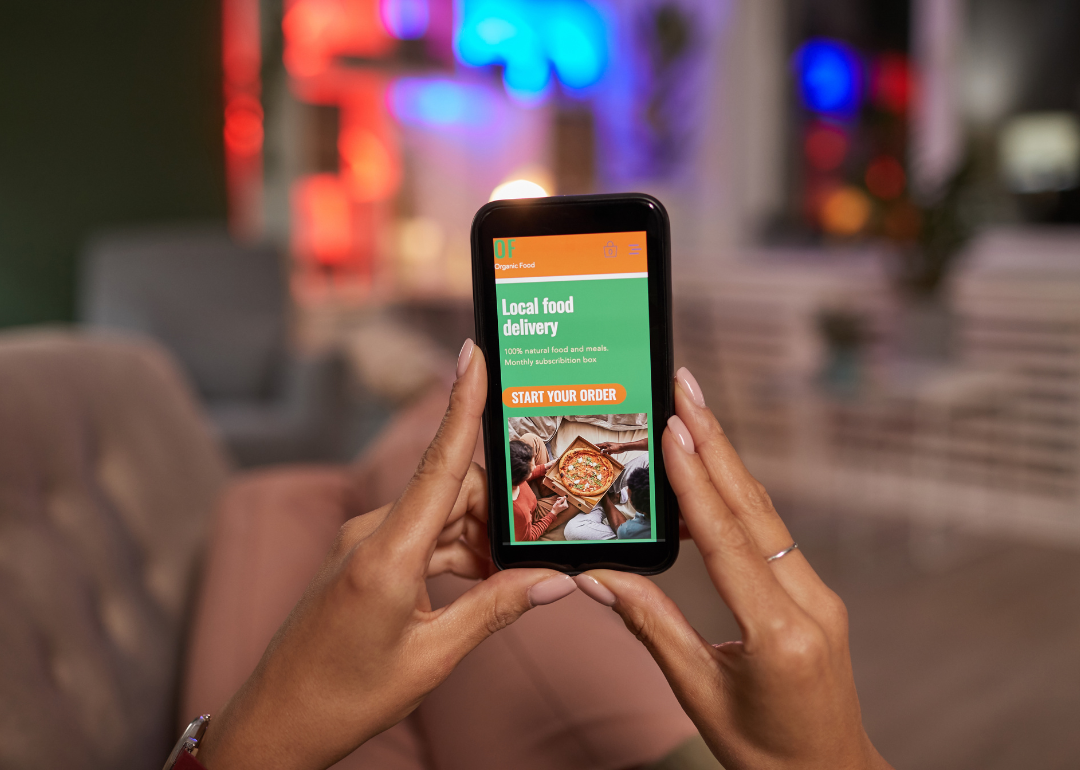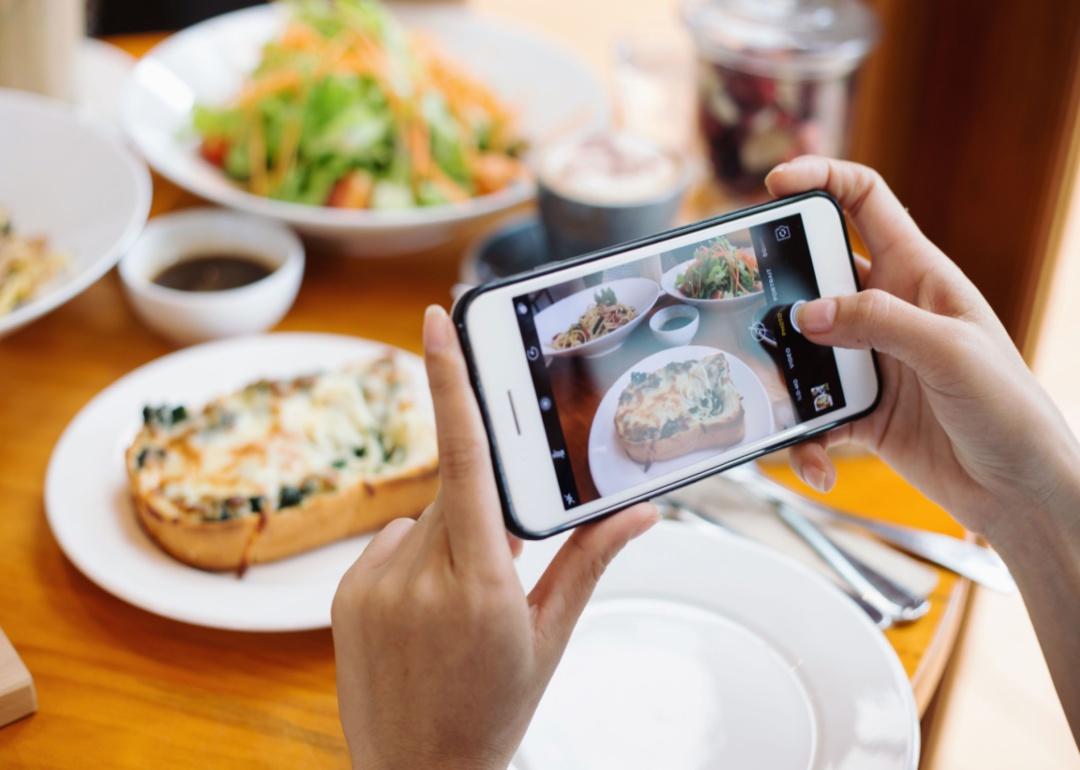43% of customers want restaurant loyalty programs—here’s how they work
Monkey Business Images // Shutterstock
43% of customers want restaurant loyalty programs—here’s how they work
A group of friends toast each other at a restaurant.
While inflation has led to costs rising across numerous industries, the food industry is taking a significant hit. Grocery store costs are up 13.5% compared to August 2021, and restaurant purchases (food away from home) are up by 8%, according to the August 2022 Consumer Price Index. With food getting more expensive, restaurants are looking for ways to continue bringing in business while still making the dining-out experience affordable for customers, and loyalty programs seem to be a relatively easy solution.
Forty-three percent of customers surveyed said loyalty programs would make them more likely to go to a restaurant, according to a report from Pymnts. Currently, 57% of restaurants offer rewards programs, and 1 in 4 have near-term investment plans.
To better understand how loyalty programs benefit diners, Task Group compiled insights on restaurant loyalty program from Pymnts and Deloitte to analyze the demand for these programs, their most important and popular features, and areas where restaurants may continue to grow their offerings.
![]()
Canva
Attracting customers
Two women laughing with a server while looking at menus.
Loyalty programs offer price markdowns for patrons looking for a restaurant experience that won’t break the budget. Consumers enrolled in an average of two restaurant loyalty programs to save money at their favorite establishments, according to Deloitte. The opportunity for markdowns creates loyal returning customers; more than 3 in 4 Deloitte survey respondents say their participation in loyalty programs plays a significant role in deciding where they dine. Loyalty programs can provide coupons, reduced prices, exclusive products, and even free items.
Canva
Fast food vs. sit-down restaurants
A man in a black and white striped apron preparing a pizza to go.
Along with saving money, customers are looking for convenience—hence why 2 in 3 quick-service/fast-food establishments offer programs, per Pymnts. This number is drastically different from sit-down restaurants, with only 1 in 3 offering loyalty programs to customers. The convenience factor is a big play—37% of survey respondents said they would be more inclined to order from a restaurant offering easy pickup (such as curbside or drive-thru) without standing in line.
Popular fast-food establishments have relied on loyalty programs for years to maintain a steady business. Starbucks offers free beverages when you collect a certain number of gold stars, and McDonald’s offers free fries immediately to new members and other free goodies later. Chili’s Grill & Bar nails the loyalty program, offering free chips and salsa and a nonalcoholic beverage for Chili’s Rewards members every 60 days, along with easy online ordering and curbside pickup through Chili’s To Go.
Canva
Markdowns
A person in business attire in front of a laptop orders burgers and fries on a cellphone app.
Cost reductions are a significant component of loyalty programs, and the data shows it works; Pymnts reports loyalty customers receive an average 4% markdown off typical food prices through restaurant reward programs. The most significant percentage of respondents in a Deloitte survey said they sought coupons and reduced prices in a loyalty program, followed by free items.
Another cost reduction for customers using loyalty programs is avoiding the typical markup from third-party delivery services or aggregators. Pymnts reports that more than 1 in 4 quick-service restaurants admitted to marking up their prices when offering their items on third-party aggregators, and 42% of their survey respondents admit the increased prices are worth the convenience these third-party delivery services provide.
While many restaurants use loyalty programs to encourage customers to go to them directly, the convenience factor may not be as easily accessible. Nevertheless, Pymnts reports that 2 in 5 consumers would be more likely to go directly to restaurants if they could pay or order online, and 1 in 3 are more likely to order if they offer curbside pick up. Plus, with loyalty programs, 41% of consumers would be encouraged to purchase from restaurants directly.
Canva
App-based rewards
A person holding a phone with a restaurant app open to a pizza delivery.
Nearly three-quarters of restaurants provide app ordering (including aggregators like Grubhub or Seamless), per the Pymnts survey, while about 31% of customers said they’d be more inclined to shop with restaurants that offered it. While 19% of restaurants don’t have app ordering, they do plan to invest in this feature.
Along with the convenience of having loyalty programs readily available, an app allows restaurants to track customer information to provide personalization in terms of location, favorite food orders, and even days they visit. This information allows for an even more personalized customer experience, offering deals that work well for their schedules and preferences based on purchase history.
URAIWONS // Shutterstock
Social media
A person taking a photo of a meal on a phone.
While many quick-service chains and some table-service chains offer discounts through apps and email marketing, many aren’t tapping into that loyal fan base through social media marketing.
Pymnts reports that 1 in 4 nonchain quick-service restaurants offer rewards to customers who support the restaurant through social media; this encourages customers to engage with the brand online to receive discounts and coupons, yet not many other types of restaurants offer this benefit. Only 4% of table-service chains provide this incentive, and no reported quick-service chains and independent table-service restaurants supply it. This offering could help build a brand’s social media presence through organic social media marketing while bringing potential new customers into their loyalty programs.
This story originally appeared on Task Group and was produced and
distributed in partnership with Stacker Studio.
